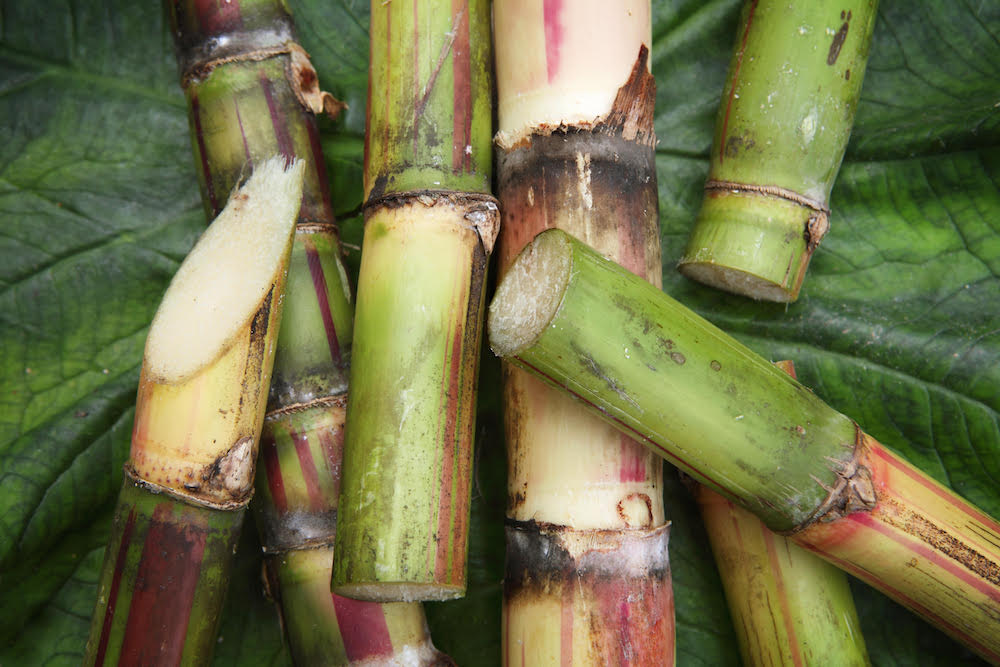How Sugar and Cane Are Used in the Production of Natural Sweeteners
Why Cane Sugar Processing Chemicals Are Critical for Modern Sugar Refining
The function of walking stick sugar handling chemicals in modern-day sugar refining can not be overemphasized, as they are integral to enhancing both the effectiveness of extraction and the total high quality of the last item. Representatives such as phosphoric acid and certain flocculants are utilized to get rid of pollutants, leading to sugar that not just satisfies customer expectations however likewise adheres to sector standards. However, the effects of these chemicals prolong beyond top quality, touching upon market dynamics and environmental considerations. This raises vital concerns about the sustainability of such techniques and their influence on the future of sugar manufacturing.
Function of Handling Chemicals
The efficiency of walking cane sugar handling hinges significantly on the tactical application of processing chemicals. These chemicals play an essential role in boosting the efficiency and top quality of sugar removal and refining. From the first phases of juice removal to the final filtration steps, processing chemicals help with different important procedures.
In the extraction stage, chemicals such as phosphoric acid and calcium hydroxide are utilized to maximize the information procedure, assisting to eliminate contaminations and put on hold solids from the walking cane juice. This not just enhances the return but also ensures the quality of the end product. In addition, agents like flocculants aid in the rapid settling of impurities, consequently streamlining the overall procedure.
Activated carbon and ion exchange resins offer to get rid of color and smell, making sure that the refined sugar fulfills customer top quality criteria. Hence, the thorough option and application of these chemicals are essential for attaining optimum end results in cane sugar processing.
Key Sorts Of Chemicals
Walking stick sugar handling counts on a range of crucial chemicals that help with each stage of production. These chemicals play crucial duties in clearing up, bleaching, and detoxifying the sugar drawn out from cane.
One key group of chemicals includes flocculants, such as polyacrylamide, which help in the clarification process by promoting the aggregation and settling of contaminations. Additionally, calcium hydroxide is commonly employed to neutralize level of acidity and assist in the elimination of non-sugar parts.
Lightening agents, such as activated carbon and sulfur dioxide, are used to decolorize the syrup, causing a clearer final item. These chemicals help remove shade compounds that may affect the sugar's look and bankability.
Furthermore, phosphoric acid works as a pH regulatory authority during the processing phases, making certain optimum problems for the enzymatic activities associated with sugar removal and filtration.
Other important representatives consist of edta (ethylenediaminetetraacetic acid), which chelates metal ions that could militarize unfavorable responses, and sodium hydroxide, which helps in pH control throughout the refining process. Jointly, these chemicals enhance performance and guarantee a high-quality walking stick sugar product.
Benefits for Sugar Quality
Commonly ignored, the use of details processing chemicals considerably improves the general quality of walking stick sugar. These chemicals play a crucial role in refining processes, making certain that the last product satisfies rigid sector standards for pureness and preference.

Additionally, processing chemicals aid in attaining a regular granulation and texture, which are vital for consumer approval. By managing the formation procedure, these chemicals ensure that the sugar crystals develop uniformly, causing an extra enticing product that liquifies well in different applications.
Furthermore, the usage of these chemicals can boost the rack life of cane sugar by reducing dampness absorption and microbial growth. Generally, the calculated application of site here handling chemicals is essential for delivering top notch walking cane sugar that fulfills customer assumptions and market needs.
Ecological Influence Considerations

Furthermore, the energy-intensive nature of sugar refining, worsened by chemical usage, frequently causes increased carbon emissions. This adds to climate adjustment and raises issues relating to the sustainability of current refining techniques. Additionally, the sourcing of these chemicals might involve methods that intimidate biodiversity, such as monoculture farming, which reduces the durability of farming ecological communities.

To mitigate these effects, sugar refiners are significantly checking out sustainable alternatives and adopting ideal techniques that lessen chemical use. Implementing extensive environmental monitoring systems can assist make certain that the refining procedure straightens with ecological criteria and promotes biodiversity. Inevitably, a well balanced strategy that focuses on both sugar high quality and ecological stewardship is essential for the long-term viability of the sugar market.
Future Fads in Refining
As the sugar sector comes to grips with the ecological difficulties related to conventional refining methods, innovative approaches are arising to enhance both effectiveness and sustainability. One considerable pattern is the adoption of environment-friendly chemistry principles, which prioritize using safe, biodegradable handling chemicals. This change not just lessens environmental influence discover this but likewise addresses consumer demand for cleaner manufacturing techniques.
An additional encouraging advancement is the implementation of advanced purification technologies, such as membrane splitting up and adsorption processes. These techniques boost the quality and top quality of the sugar while lowering the volume of wastewater generated throughout refining. In addition, the combination of digital modern technologies, including IoT and AI, is changing functional efficiency by making it possible for real-time tracking and anticipating maintenance, thus minimizing source waste.
Moreover, making use of by-products from sugar refining, such as bagasse and molasses, is gaining grip. These materials can be transformed right into biofuels or value-added products, adding to a round economy within the sector. Jointly, these patterns indicate a change towards more lasting practices that not only improve functional efficiency however likewise align with worldwide sustainability objectives, guaranteeing the future stability of sugar refining.
Verdict
Walking stick sugar processing chemicals are essential in modern sugar refining, dramatically enhancing the effectiveness and top quality of sugar removal. The tactical use of these chemicals not just boosts the pureness and taste of the last product yet also guarantees constant condensation and texture. As the market progressively focuses on sustainability, the fostering of environmentally-friendly processing agents is most likely to form future fads in refining, inevitably leading to better items and expanded rack life for customers.

Ultimately, a well balanced strategy that prioritizes both sugar high quality and ecological stewardship is necessary for the lasting practicality of the sugar market.
Walking stick sugar processing chemicals are vital in contemporary sugar refining, dramatically boosting the performance and top quality of sugar removal.